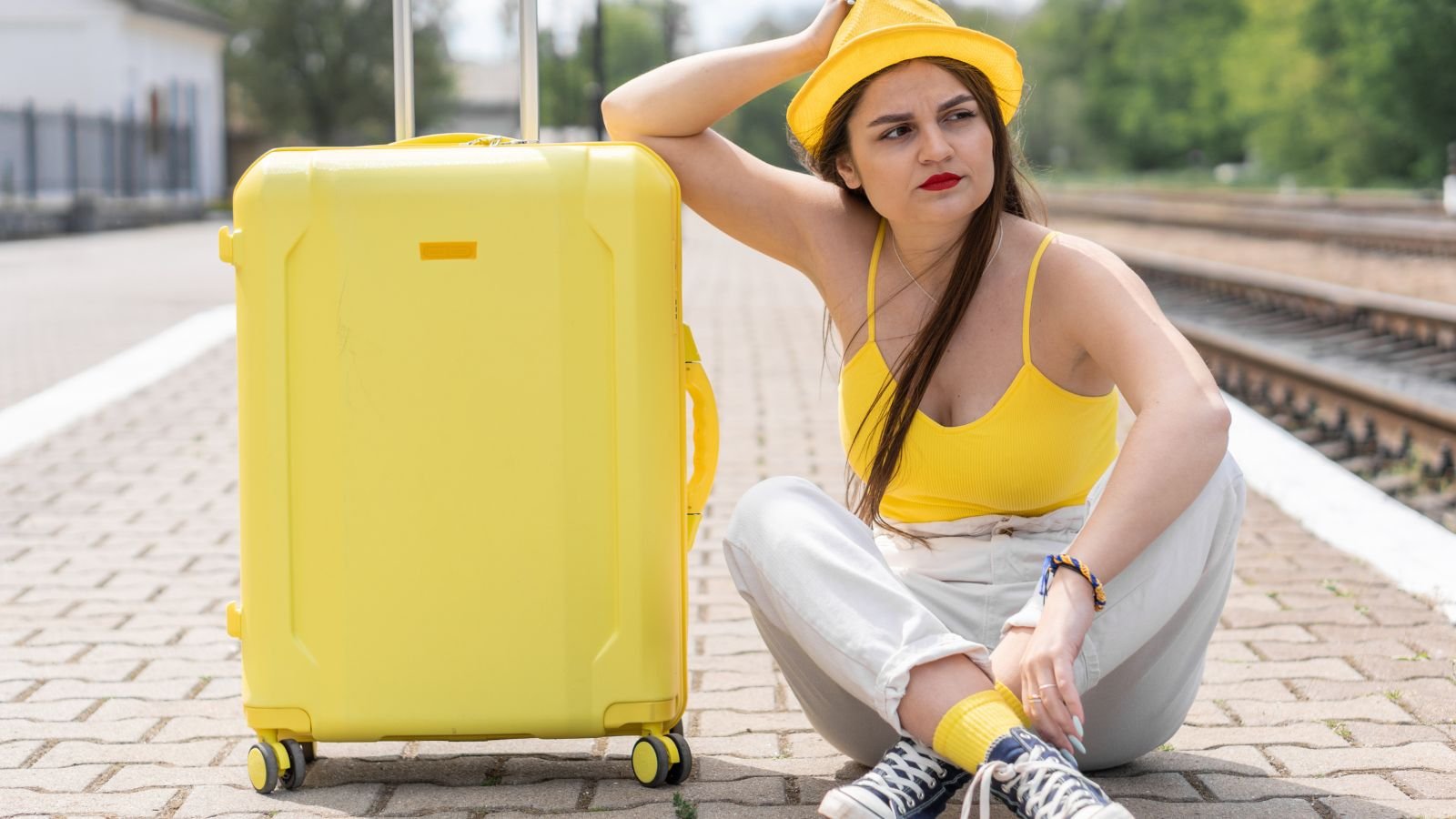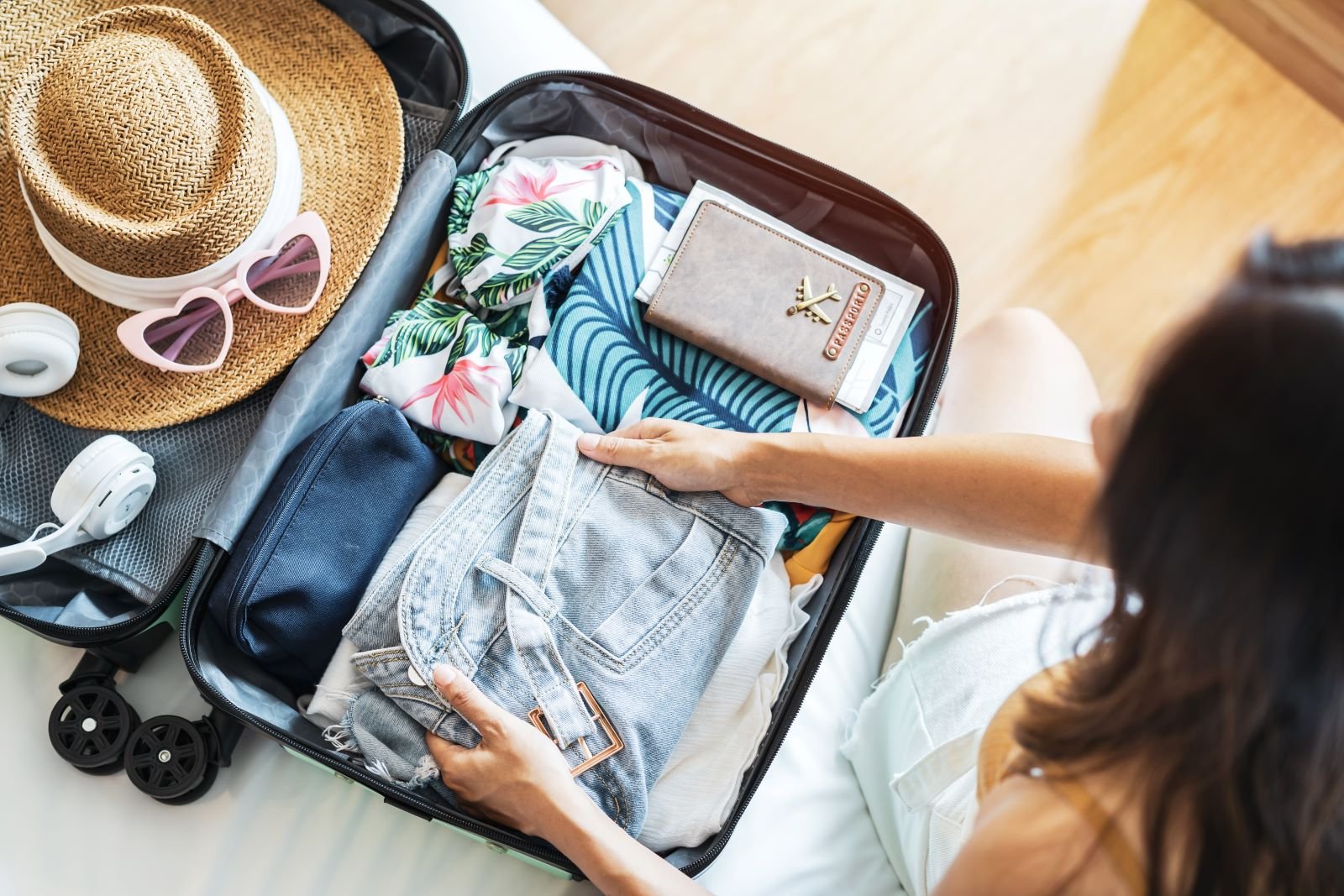People look forward to vacations to rest, explore new places, and create lasting memories. However, the excitement of planning and experiencing a getaway can sometimes lead to overspending and financial strain. While a well-deserved break is essential, it is crucial to be aware of certain habits that can unnecessarily drain your wallet.
Let’s find out about 15 money-wasting vacation habits.
Overpriced Accommodations

Many travelers fall into the trap of booking luxurious hotels without considering more affordable alternatives. According to a survey by Statista, the average daily rate for a hotel room in the US was forecast to increase to US$155 by 2024 from US$145 in 2022. Opting for vacation rentals, budget hotels, or hostels can significantly reduce lodging expenses without compromising comfort. If you are on an extended holiday in Europe and traveling in a group, Airbnb might be a more cost-effective solution. Airbnb often offers cost-saving utilities like a fully functional kitchen, coffee maker, and laundry facilities.
Dining Out For Every Meal

Eating out for breakfast, lunch, and dinner quickly adds up. Worldmetrics.org reports that the average American spends about $232 per month dining out. This cost can skyrocket on vacation if you dine at restaurants for every meal. For example, eating out in Europe can cost you anywhere from €10-15 at cheap restaurants and €60 for a three-course meal for two people at a mid-range restaurant. However, prices vary from one European country to another. Consider grocery shopping to pick up bread, deli meat, veggies, and fruits, prepare some meals to save money, and still enjoy local flavors.
Tourist Trap Attractions

Tourism is seeing a massive tourism boost post-pandemic, especially in Europe, Asia, and the Pacific. Europe, the most popular tourist destination, recorded 700 million tourists in 2023, while the US saw 5,369,628 international visitors in 2023. Popular tourist spots often charge high entry fees and are packed with people. While these attractions can be worthwhile, exploring lesser-known sites or, engaging in free activities like hiking, climbing up a hill for a spectacular sunset, or visiting public parks can provide a more authentic and budget-friendly experience.
Rental Car Fees

Renting a car can be convenient but comes with additional costs such as insurance, fuel, and parking. According to Nerdwallet, the average weekly car rental will cost US$481 if booked seven days in advance. Utilizing public transportation, rideshares, or even walking can reduce transportation expenses while allowing you to explore your destination.
Foreign Transaction Fees

Using credit cards abroad can incur foreign transaction fees, which can be up to 3% per transaction. Choose cards with no foreign transaction fees to save on these hidden costs. Furthermore, always pay in the local currency for the best conversion rate.
Relying on Bottled Water

Purchasing bottled water can add up to your overall budget, especially in tourist-heavy areas where prices are inflated. Americans spend an average of US$16 on bottled water per day. Carry a reusable water bottle and refill it at your lodging and other safe and free water sources to save money and reduce plastic waste. Many hotels and public spaces provide clean drinking water, making it easy to stay hydrated without the extra cost.
Buying Daily Coffees

A daily coffee habit can be costly when traveling. Your cup of coffee on average costs US$4.90. This expense can multiply significantly during a vacation. Consider bringing a travel mug and brewing your coffee in your accommodation or seeking local cafes offering more affordable options.
Taking Taxis

Relying on taxis for transportation can drain your budget quickly. In 2022, the taxi fares in New York City increased, and the average taxi ride cost US$19.62. Public transportation, ride-sharing services, or even walking can be more cost-effective and allow you to experience the local culture. Many cities offer day passes for public transit, which can further reduce costs and provide unlimited travel for a set price.
Not Buying Tickets For Attractions/Experiences In Advance

Purchasing tickets for attractions and experiences at the last minute often means paying premium prices. Plan early on to avail of early-bird discounts and special offers. It also ensures availability, preventing you from missing out on popular activities due to sold-out tickets.
Hotel Laundry

Using hotel laundry services is notoriously expensive, with prices often double or triple those of local dry cleaners. On average, laundry service costs US$20-50 per load of 15 to 30 lbs, but hotel services can charge significantly more. Instead, pack wrinkle-resistant clothing and a portable fabric steamer to maintain your wardrobe without incurring high costs. Alternatively, research nearby laundromats or dry cleaners that offer more reasonable rates.
Overpacking

Overpacking can lead to additional baggage fees. Pack strategically and utilize carry-on luggage to avoid these extra costs. Light packing also makes travel more convenient and stress-free, especially in places like Europe, where one has to drag their luggage over uneven cobbled streets, steep climbs, and stairs.
Last-Minute Bookings

Booking flights and accommodations at the last minute can result in higher prices. The best time to book domestic flights is 28 days in advance, and for international flights, it’s 60 days in advance. Planning allows for better deals and lower rates.
Dining At Expensive Places Closer To Major Attractions On Recommendation Of Travel Influencers

Influencer recommendations often highlight trendy, expensive dining spots near major attractions, leading many travelers to overspend. Opt to eat at local eateries away from popular tourist sites to enjoy authentic cuisine at more affordable prices. Researching local food blogs and asking locals for recommendations can lead to delightful and budget-friendly dining experiences.
Not Sticking To Budget

Failing to set and adhere to a vacation budget can lead to overspending and anxiety. To avoid this, outline your expected expenses before the trip and track your spending daily. Use budgeting apps or maintain a simple log to ensure you stay within your means and enjoy your vacation without monetary regrets.
Not Using Rewards Programs

Many travelers overlook the benefits of loyalty programs and reward points. According to a global survey by MMYG, 52% of frequent travelers belong to at least one hotel loyalty program, while 48% have joined at least one airline loyalty program. Leveraging these programs for flights, hotels, and car rentals can provide significant savings and perks, enhancing your vacation experience without added expenses.
